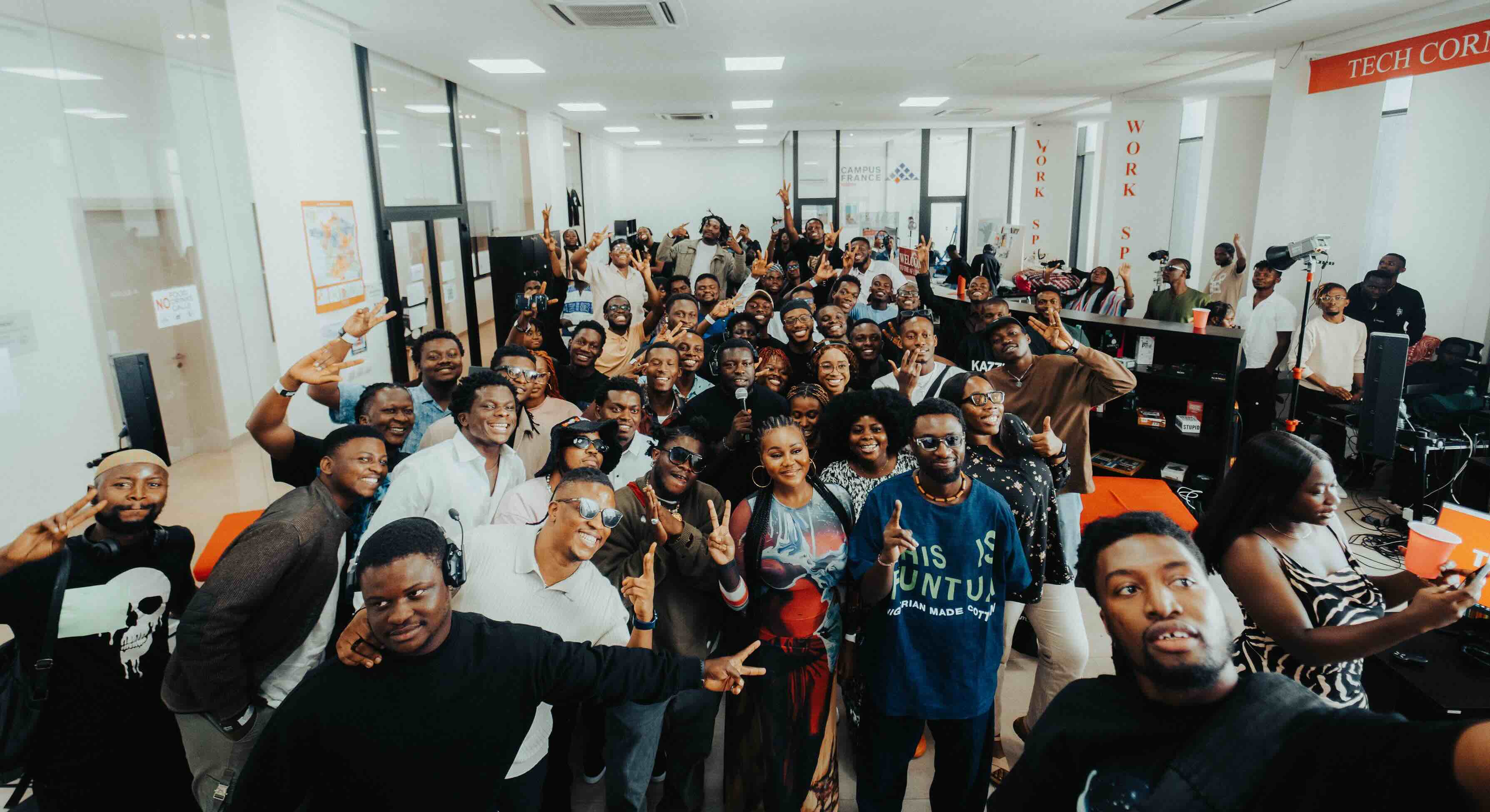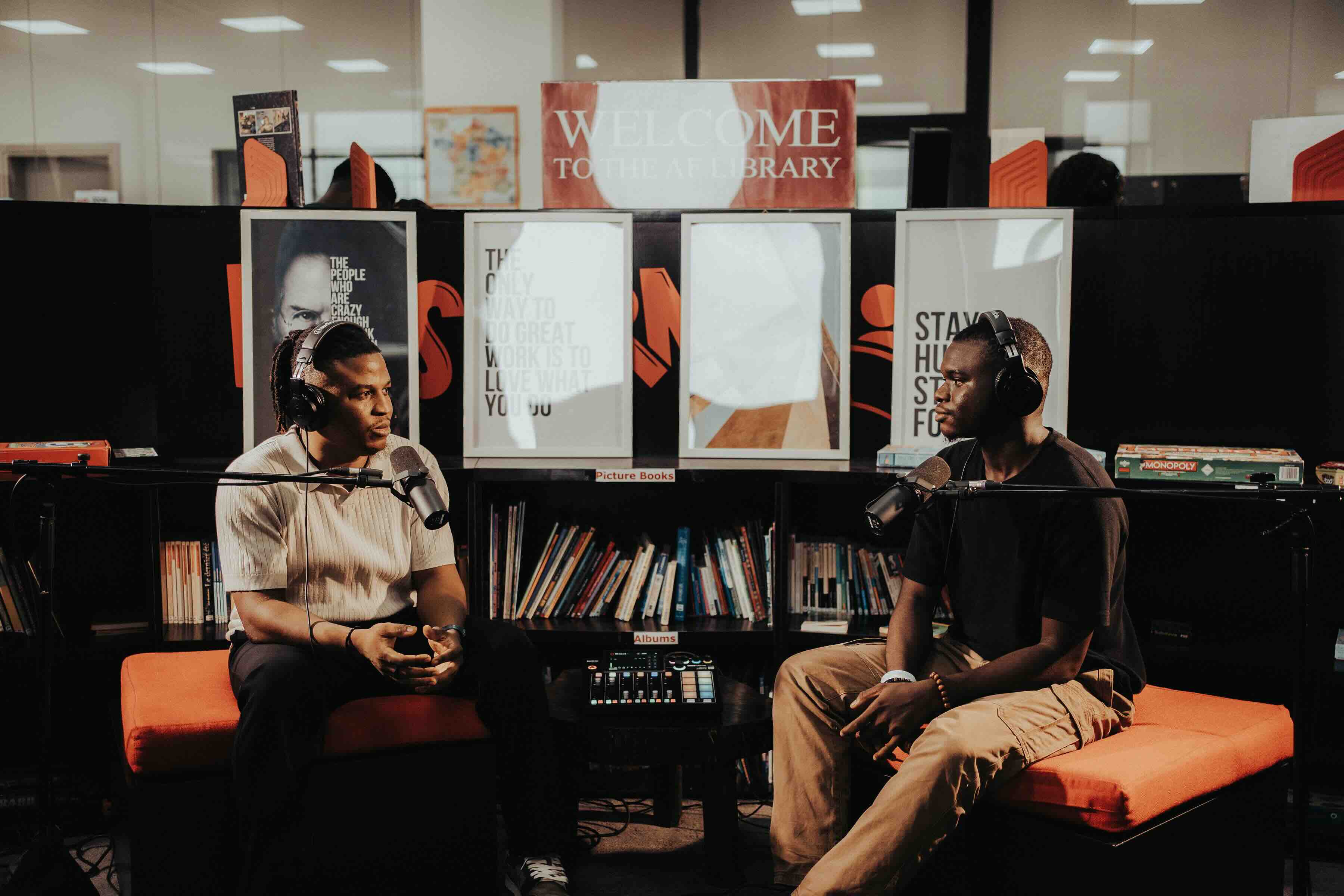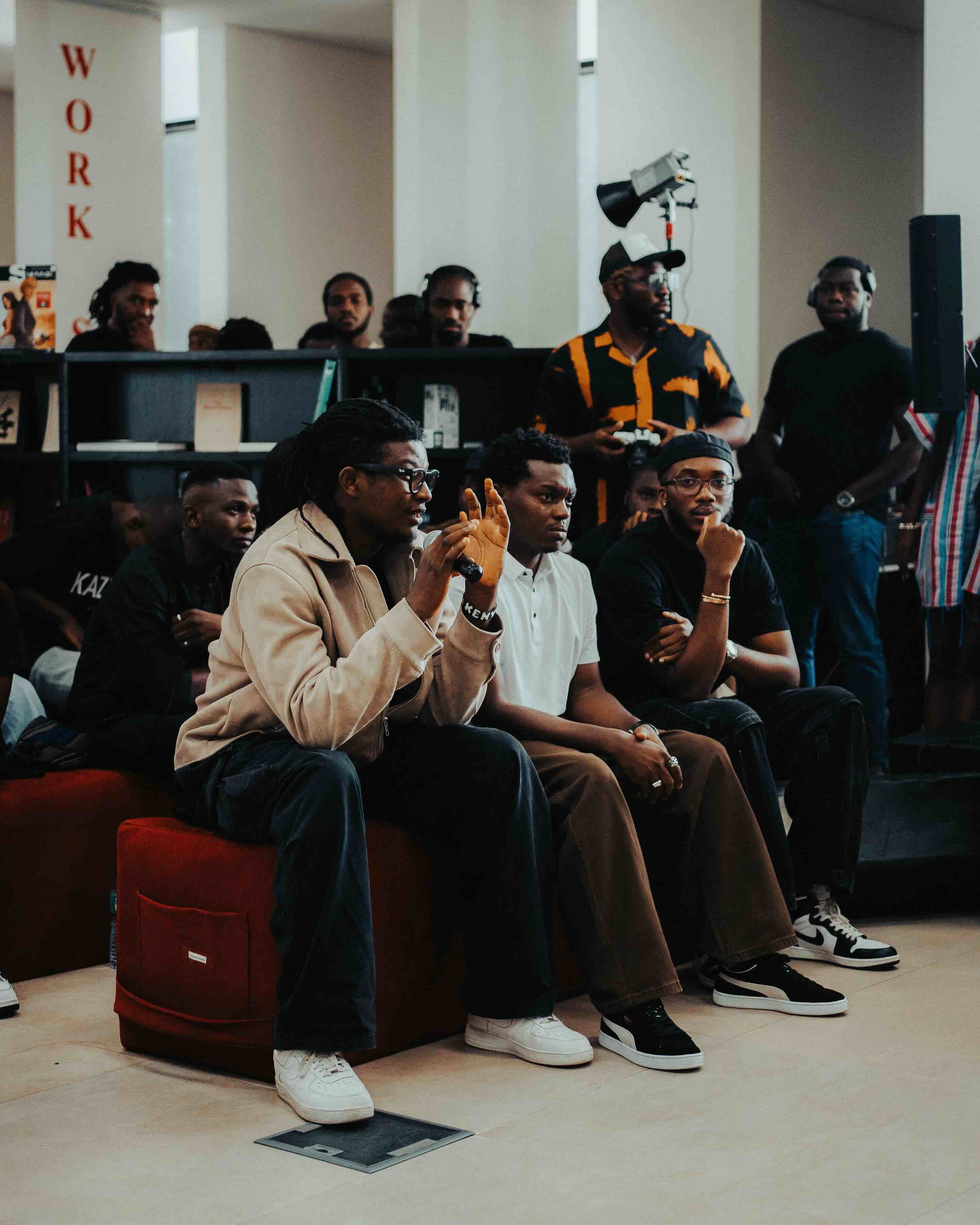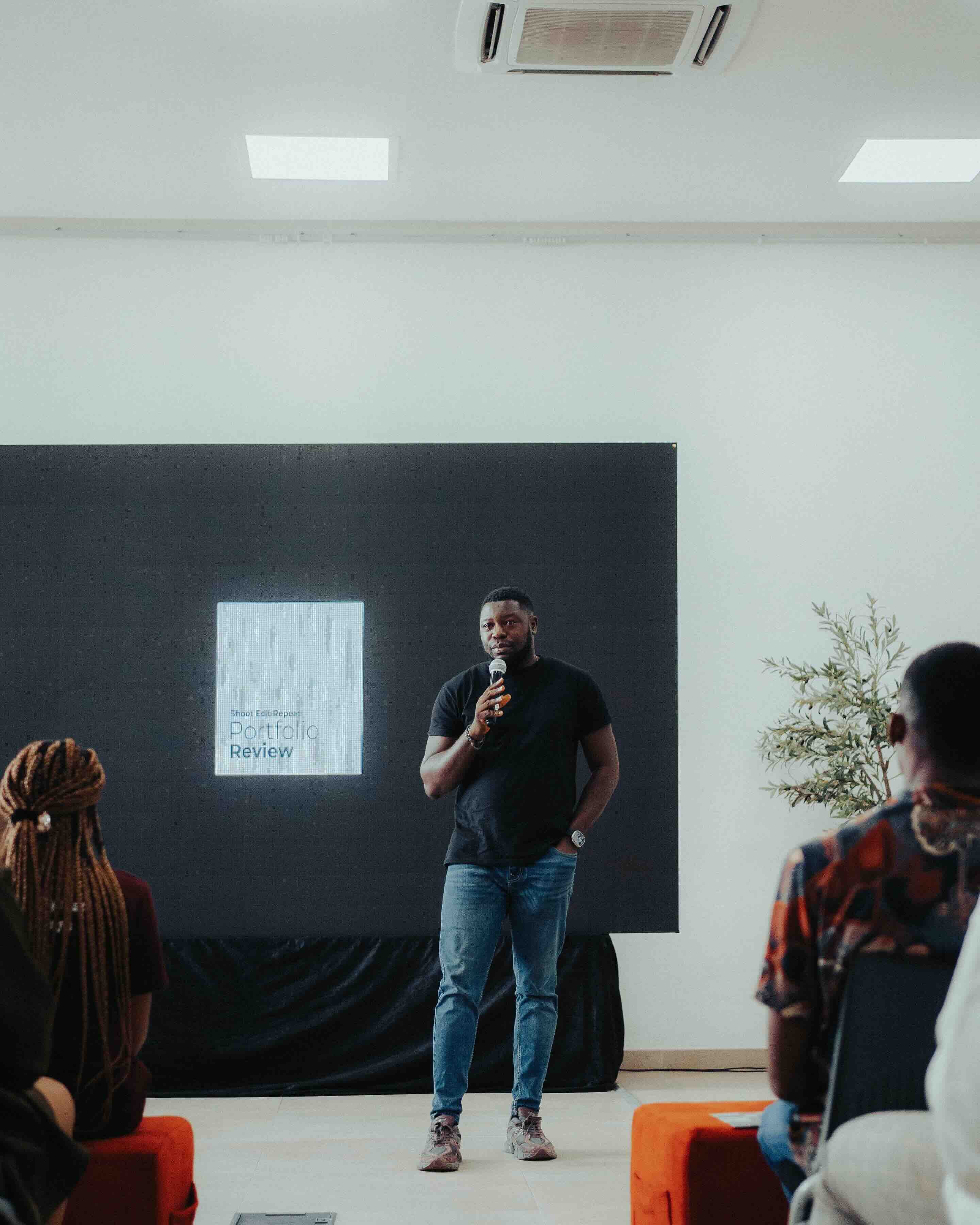
Transforming African Creatives From the Ground Up
Transforming African Creatives From the Ground Up
For decades, African creatives have faced the same stubborn challenges: limited funding, lack of infrastructure, and gatekeeping that made knowledge-sharing almost impossible. If you weren’t part of the “in-crowd” or didn’t have the right connections, your growth as a creative often hit a ceiling.
In due time, as always, there is bound to be a change. Across the continent, filmmakers are building creative communities—spaces where collaboration replaces competition, where mentorship is just as valuable as a film school certificate, and where storytelling is democratized.
At the heart of this shift is Shoot Edit Repeat, a Nigerian-born community that has quietly (and now loudly) become one of the most important spaces for emerging and professional filmmakers.

Shoot Edit Repeat began as a knowledge-sharing platform: workshops, meet-ups, and practical sessions where young filmmakers could learn everything from cinematography to post-production directly from industry professionals.
But it has since grown into something far greater. Now, it has gone beyond technical learning to building a network of collaboration. Directors meet editors. Screenwriters meet cinematographers. Sound engineers meet producers. And out of these connections, new projects are born.
In a country where the film industry often feels like a hustle, Shoot Edit Repeat offers something rare, which is Community.
African filmmaking has often been framed as a competitive sport with everyone scrambling for the same grants, festival slots, or distribution deals. Shoot Edit Repeat flips the script. Here, collaboration is the currency. They move with this urge: if we grow together, the industry grows with us.
Formal film education is expensive. Film schools in Africa are few and often underfunded. Communities like Shoot Edit Repeat bridge that gap, offering workshops led by working professionals who are in the trenches of filmmaking right now. This kind of peer-to-peer mentorship is invaluable, and it’s affordable.
Representation in film is not just about who appears on screen, it’s also about who holds the camera, who edits the footage, who writes the script. Shoot Edit Repeat actively works to make filmmaking accessible to young and underrepresented voices, ensuring that the next generation of African cinema reflects the full spectrum of African realities.

What makes communities like Shoot Edit Repeat powerful is not just what happens in a single workshop. It’s the ecosystem effect. You can think of the cycle like this;
This is how ecosystems are built. Not from top-down policies or billion-dollar investments, but from grassroots collectives that create opportunities, visibility, and collaboration.
The truth is, African filmmaking cannot rely solely on traditional institutions. Film schools are still vital, yes, but the future belongs to communities that are agile, inclusive, and responsive to real industry needs.
Shoot Edit Repeat is a blueprint for what that future looks like:
If Nollywood and other African film industries are to remain competitive on the global stage, communities like this will be the engine that drives innovation and sustainability.

No news that African cinema is at a crossroads. Hollywood is paying attention. Streaming platforms are investing. Audiences across the globe are hungry for authentic African stories.
But to fully seize this moment, Africa needs more than individual success stories; it needs collective growth.
That’s why Shoot Edit Repeat proves that filmmaking doesn’t have to be a lonely journey; it can be a shared one. It shows that knowledge is power, but shared knowledge is transformation.
And if Africa’s filmmakers are going to tell stories bold enough to change the world, they’ll need exactly what they provide, which is a community that believes in them.
Comments